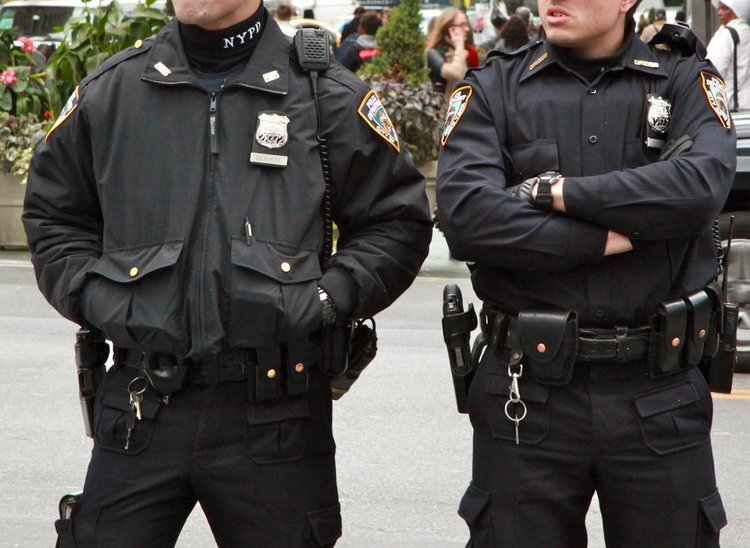New database shows hundreds of thousands of NYPD misconduct records
/A new online database released by the Legal Aid Society on Monday includes hundreds of thousands of police misconduct records across agencies, the first such database of its kind. Eagle file photo by Torba K. Hopper
By Jacob Kaye
In an effort to shed more light on the disciplinary histories of New York City’s police officers, the Legal Aid Society released Monday a new database that may be the most comprehensive collection of NYPD officer misdeeds to date.
The public defense group launched the Law Enforcement Lookup database on Monday, an online tool that allows users to look up more than 450,000 misconduct and other police records for free. The database also includes misconduct information about officers with the city’s Department of Correction.
Much of the information featured in the database was already publicly available, however, it was never before available in one location.
“What we've put together is basically a one-stop shop,” Jennvine Wong, a staff attorney on the Legal Aid Society’s Cop Accountability Project, told the Eagle. “Accountability, it cannot be achieved without transparency. We have to have transparency, first and foremost, in order for us to continue to pursue that accountability.”
The database, which can be accessed via the Legal Aid Society’s website, includes over 18,000 lawsuits filed against over 14,000 NYPD officers between 2013, and June 2022, over 190,000 Civilian Complaint Review Board records, around 9,000 internal NYPD misconduct reports, around 15,000 district attorney and judicial records on Brady and Giglio disclosures, payroll data, and about 1,000 media articles on NYPD misconduct.
It also includes staff disciplinary records inside the Department of Correction.
Though the collection of records is new, many of its elements had already been put in place and available to Legal Aid Society attorneys over the past several years, according to Wong. Previous databases were available to the attorneys to consult while taking on a case.
“It’s another iteration of a database that was already created within the Legal Aid Society,” Wong said. “We shared it with each other in order for us to provide a better quality of representation for our clients and so that we can share information about any kind of particular bad cops, for example, who had patterns of misconduct that affected our clients. That’s how it started.”
It wasn’t until the repeal of 50-A, a law that shielded police misconduct records from the public, that the Legal Aid Society began exploring the possibility of disseminating the records to the public.
“We realized we have this wealth of information and with the repeal of 50-A, there is no longer this barrier to sharing this information publicly,” Wong said. “Not only that, but we were getting many more records as well because of the changes in the law.”
What resulted was the multi-year process of putting together the database.
The lookup tool, and its previous iterations, have already helped the Legal Aid Society build cases against officers with a history of misconduct, Wong said. The database helped the attorneys identify patterns in some of the officers’ behavior, be it a pattern of turning off body-worn cameras or making pretextual stops.
“I think it's really important to be able to have access to the information so that when an officer testifies in court, attorneys are able to thoroughly cross examine them and test their credibility in court,” Wong said. “But just because attorneys are able to do that, it doesn't mean that every case is going to fall apart, but what it does mean is that we are making the government go through the paces, and ensure that they are actually relying on officers that are credible in order to make their cases and not relying on officers who are willing to bend the truth just just to get a conviction.”
Included in the database are over 100 entries of NYPD officers currently or previously based in Queens who made it onto a district attorney’s adverse credibility list. Much of the Queens officer entries came from a list released by the Queens district attorney’s office in early 2021 and a smaller list released in 2019.
The Queens district attorney’s office began compiling the list in 2018.
The Legal Aid Society also hopes the tool helps the general public identify potential patterns in police misconduct after coming into contact with law enforcement.
Wong said that while the lookup tool is a good step toward transparency, there’s still work to be done, beyond the work done by attorneys and criminal justice reform advocates.
To start, she hopes the city and state compile a similar database that brings together various records within their own agencies. Should a database be created, it could shed more light on the often complex and opaque officer discipline process.
“Without it, New Yorkers are unable to really be able to evaluate the disciplinary processes and are unable to really understand the disciplinary processes and how investigations are done, and whether they're impartial and whether they're sufficient,” she said. “That's because they don't have access to all that information.”
The Legal Aid Society’s lookup tool will be updated on a regular basis as more records become available, the public defense group said.




